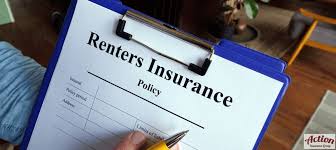
Many renters assume that their landlord’s insurance protects them, but in reality, landlords’ policies typically cover only the building structure, not personal belongings or liability. Renters insurance is affordable, comprehensive, and essential for protecting your assets, financial stability, and peace of mind. Understanding why renters shouldn’t skip coverage can help you avoid costly surprises and ensure proper protection.
What Renters Insurance Covers
- Personal Property Protection
- Covers furniture, electronics, clothing, and valuables against theft, fire, or water damage.
- Some policies include temporary relocation costs if your home becomes uninhabitable.
- Liability Coverage
- Protects against accidental injury to others or damage to others’ property inside your rental.
- Covers legal fees, settlements, or medical bills arising from such incidents.
- Additional Living Expenses
- If your rental is damaged and uninhabitable, insurance may cover temporary housing, meals, and other living costs.
- Optional Add-Ons
- Policies can be extended to cover high-value items, natural disasters, or identity theft protection.
Why Renters Insurance Matters
- Protects Personal Belongings
- A burglary, fire, or water leak could destroy your possessions. Without coverage, you pay out-of-pocket to replace them.
- Financial Security
- Liability claims or lawsuits can result in significant expenses. Insurance helps prevent financial ruin.
- Affordable Peace of Mind
- Renters insurance typically costs $15–$30 per month, a small price for comprehensive protection.
- Required by Landlords
- Many rental agreements now mandate renters insurance to protect both the tenant and landlord.
Common Misconceptions
- “Landlord’s insurance covers me”: Landlord insurance only covers the building, not your belongings.
- “I don’t have valuable items”: Even everyday items like clothes, electronics, and furniture are costly to replace.
- “It’s too expensive”: Policies are usually low-cost with high coverage, especially compared to potential losses.
Tips for Renters
- Inventory Your Belongings
- Document items with photos, receipts, and serial numbers to make claims easier.
- Understand Coverage Limits
- Check for per-item limits and consider riders for high-value items.
- Compare Providers
- Shop around for affordable premiums and comprehensive coverage.
- Bundle Policies
- Some insurers offer discounts if you combine renters insurance with auto or other policies.
Real-World Examples
- A tenant experienced a kitchen fire that destroyed electronics and furniture; renters insurance covered replacements and temporary living costs.
- Liability coverage protected a renter who accidentally injured a guest, covering medical expenses and avoiding out-of-pocket legal costs.
The Bottom Line
Renters insurance is an affordable safeguard that protects your belongings, liability, and financial stability. Whether it’s theft, fire, or accidental damage, having coverage ensures that unexpected events don’t result in severe financial loss. Skipping insurance may save money in the short term, but the risks far outweigh the costs.